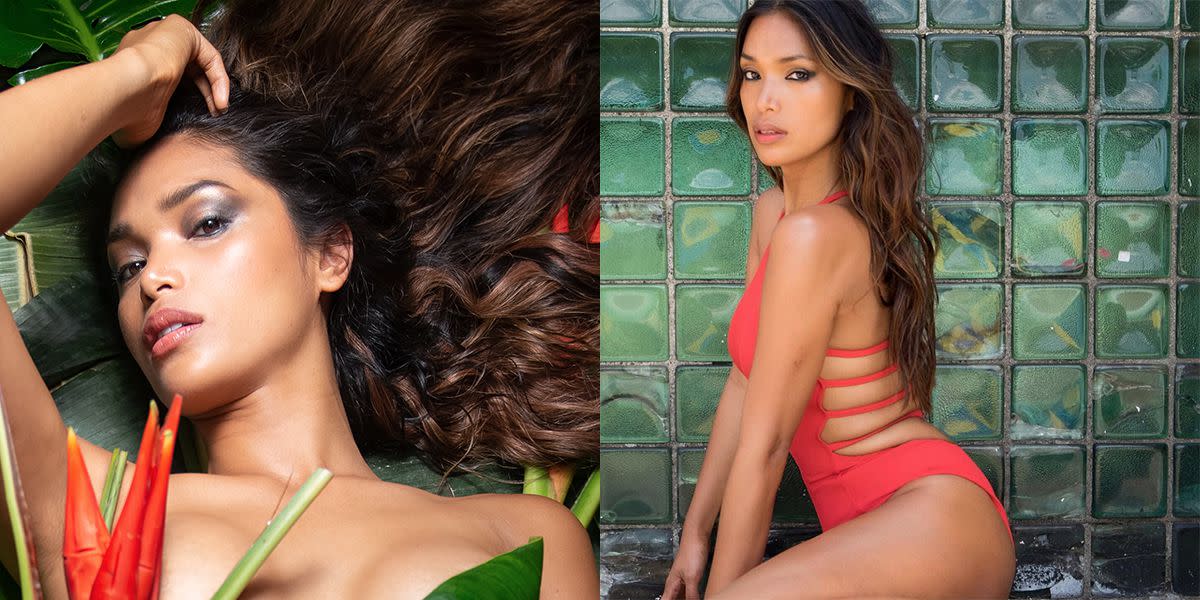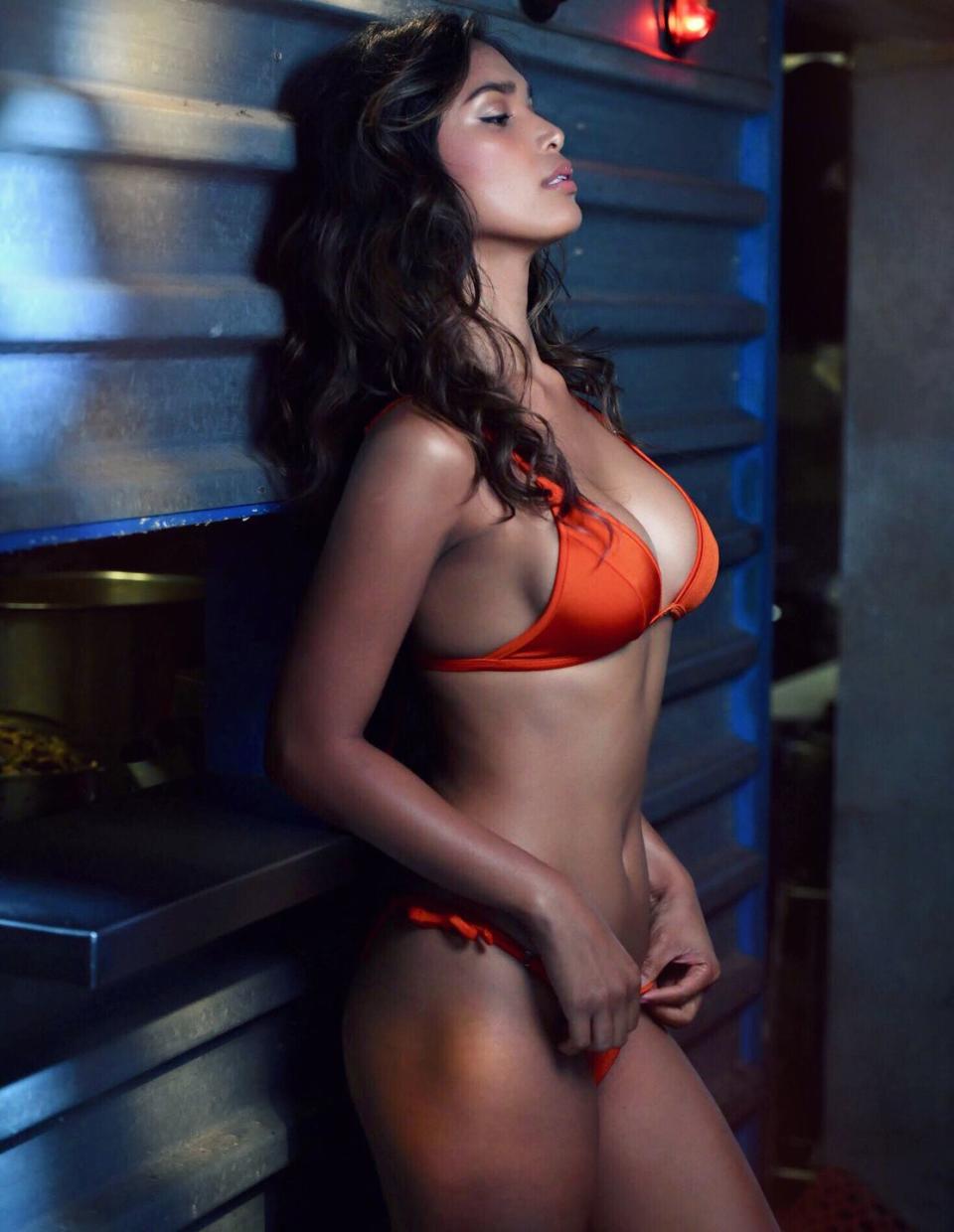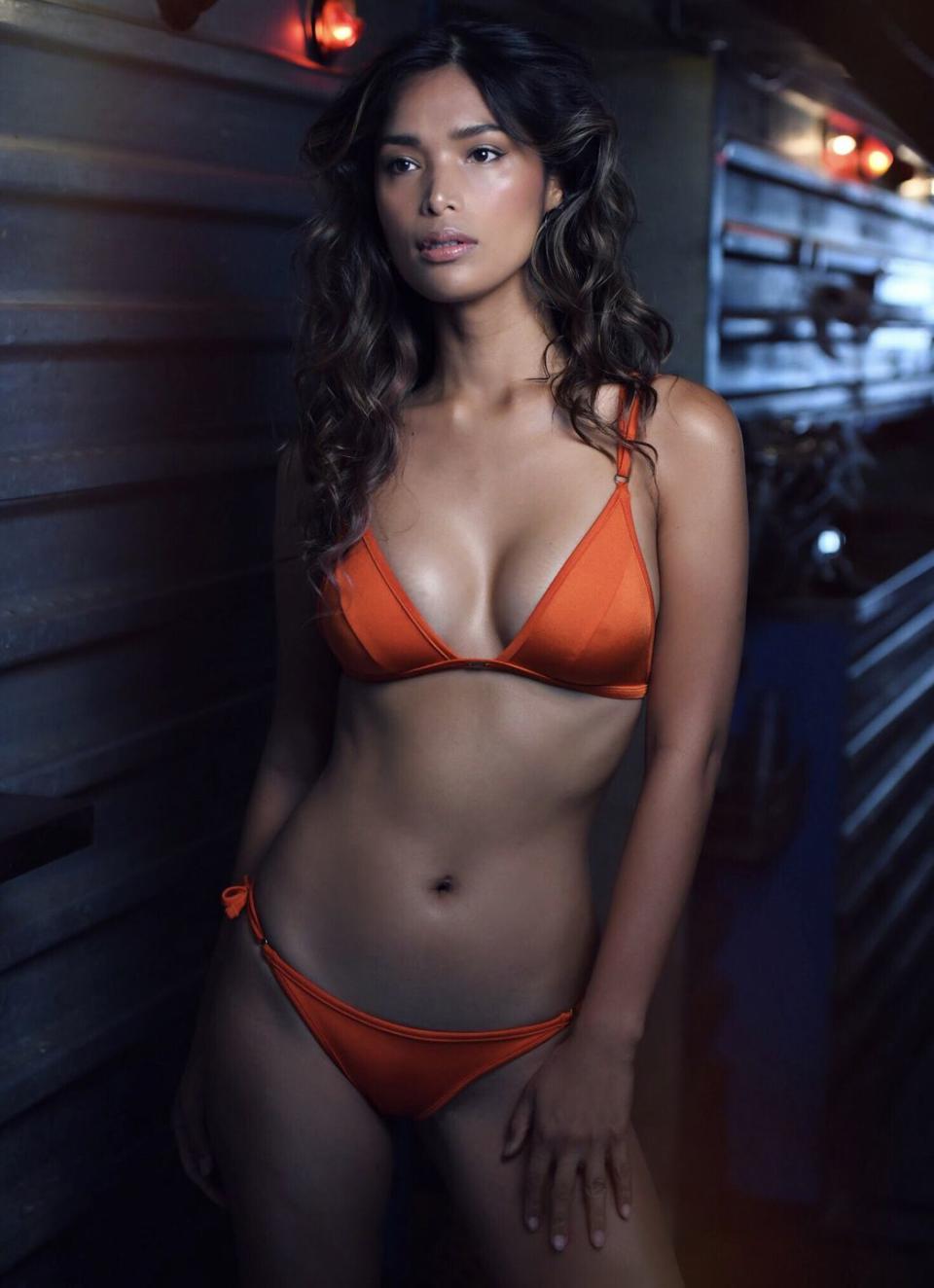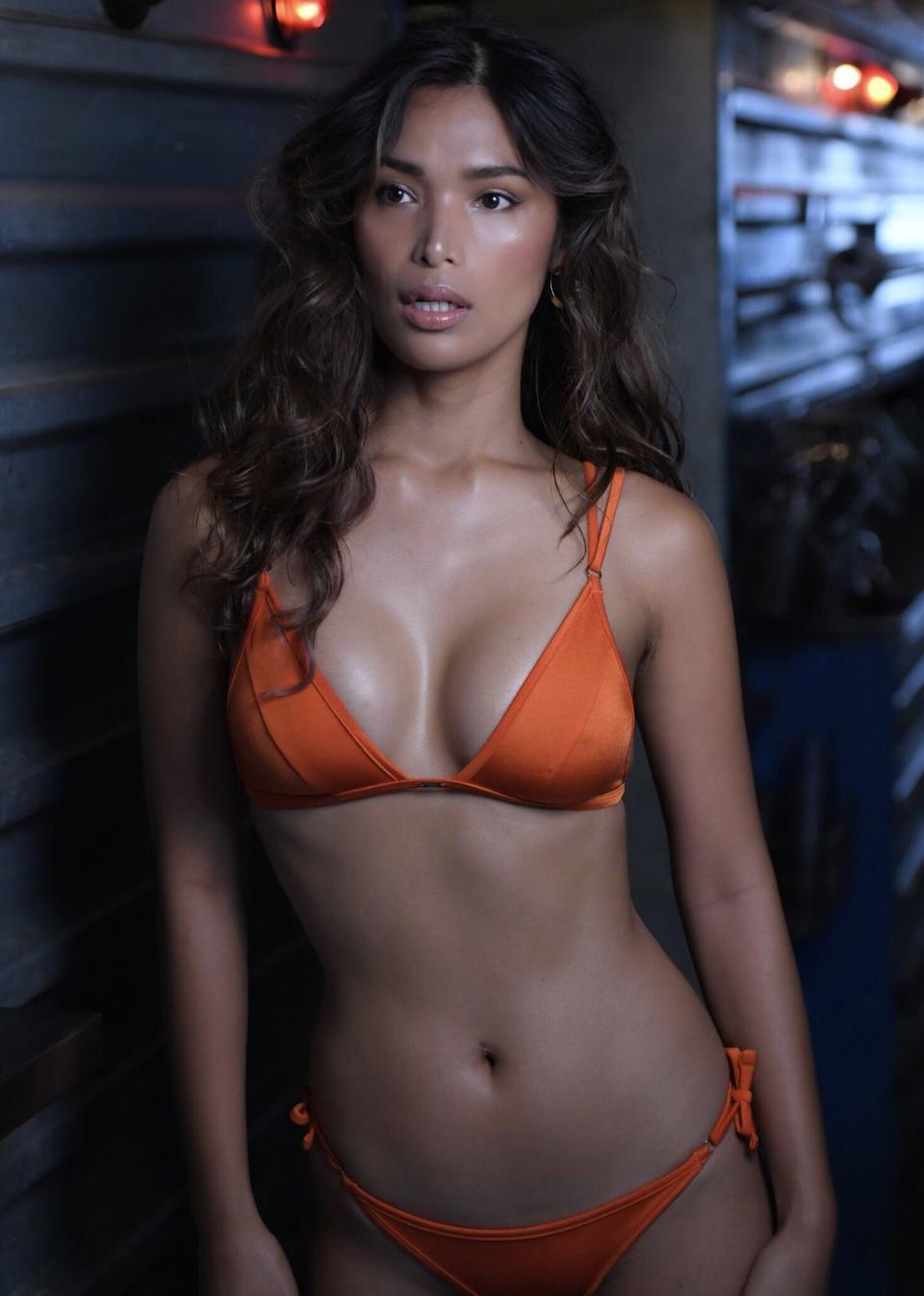Trans Model Geena Rocero to VS: I Can Sell "Fantasy" Just Fine, Thank You Very Much

Who can and can't sell "fantasy"? Following the taping of its 2018 fashion show, Victoria's Secret faced backlash over Chief Marketing Officer Ed Razek's comments suggesting that transgender models didn't belong on the VS runway. One trans Filipina model, Geena Rocero, responded by posting a series of photos and videos of herself in lingerie and swimwear. "I'm so sorry I can't sell fantasy #transisbeautiful," she wrote in one post, "But I can sell [a] 10 million dollar hair flip #transisbeautiful" she followed up in another.
The Manila-born activist rose to prominence back in 2014 when she gave a TED talk coming out as transgender and launched her trans advocacy organization Gender Proud. She's since become one of the first trans models to be featured on the cover of any Harper's BAZAAR international edition, and has walked runways for Chromat, Carmen Marc Valvo, and Marco Marco. Here, Rocero shares swim photos that showcase the kind of "fantasy" she can create and speaks to ELLE.com about what Victoria's Secret got so wrong, fighting deep-rooted beauty standards, and what the fashion industry as a whole needs to do better.
I started posting videos and photos of myself as a gut reaction to the erasure. I can't believe that [Ed Razek] would say that in public. Growing up in the Philippines, every time my sister, my cousins, and my mom would send a balikbayan box from the U.S., I used to ask them to include Victoria's Secret lotions and fragrances. It's always been such an aspiration to be a part of that dream.
I’m so sorry I can’t sell Fantasy #TransIsBeautiful @victoriassecret 📷 @jonmoephotography
A post shared by GeenaRocero (@geenarocero) on Nov 10, 2018 at 7:23am PST
The show is televised globally, so it's one of the biggest platforms you can think of when it comes to a model's exposure. You could argue it launched Heidi Klum's career. Most famous supermodels that I know, love, and admire like Tyra Banks, Gisele Bundchen, Naomi Campbell, Selita Ebanks, Adriana Lima, all of these supermodels walked the Victoria's Secret fashion show. I wanted to be just like them-especially the models of color. VS has started including different races in their casting, but it's not enough. They need to do more.
When I moved to New York and I started modeling, it was a completely different reality. I'd thought that maybe, one day, I could be one of those Victoria's Secret angels. I'd shoot a lot of swimsuit campaigns and lingerie campaigns for brands, aligning with my dream. It provided a sense of validation-I would feel like I'm in touch with my body, and the more I got comfortable in showing my body and working as a model in lingerie, I became more in touch with my own sensuality and my own definition of what makes me feel sexy. I remember going to a casting to a show room fitting for Victoria's Secret and I didn't get the job, but I remember I'd think, I'm getting close to it.

Certainly, with our political awakening it has changed a bit. There's now a recognition that Victoria's Secret really is lacking in diversity. In a way, it's always been known. But for VS to say it out loud? It's heartbreaking. It's a complete erasure of a big demographic-not just for a trans person, but plus-size models, and the average American size is 16.
It's not even about, "Oh, it's a trend, they need to get with it because everybody is doing it. It's just a simple fact that it's not a trend. Being trans is not a trend. Being inclusive is not a trend. It is the current reality of the changing demographic and consumer demands. This is what's happening in the future. Consumers are smarter, and they're evolved, and they're demanding brands to stand up for something. And they're not asking them to be complete radical activists, but they're asking them for representation. So, for [Razek] to say that is a really big erasure of a big segment of their consumer base. I don't know what Razek is talking about when they're saying they're the leader. They're not the first in the market anymore. It's changing fast.

I've been privileged to have walked many seasons of Chromat shows and they've been inclusive ever since the beginning of their brand identity, because they just know that's the right thing to do. That's what's happening in this changing landscape of identity. They represent what's happening. For me, two big intersections-being a proud, transgender woman of color and an immigrant, and being a proud Filipina-all of these things I bring into the work that I do because it provides me a sense of pride and healing. For so long, it was dictated to me that all those identities-trans, immigrant, Filipina-were not valued. It didn't deserve a space.
Growing up in the Philippines, I bought all those ideas that stem from a colonized mentality-that your proximity to whiteness makes you beautiful. I myself would buy skin whitening soap and cream. It's blatantly advertised on billboards and commercials: You want to be white? You'll be sexier and happier if you're white. But the moment I became more in touch with that, I realized the power I carry with me in all the spaces I inhabit is because of those identities, not despite those identities.

Tokenism is a big, big issue. I've been in many situations where I'm the only one like me in the room. Some people think that's a good thing-for me, it's not. As someone who is a producer of media right now, I'm very aware of the fact that when I'm hiring people who are going to tell the story, I want to make sure that the people behind the scenes are also people that we're trying to represent. I want subjects to know they're surrounded with people that honor their identity.
There's more trans people on the runway. I think what I would like to see more is for casting directors, brand directors, and creative directors to really see this is not a trend. It's not going to last for one or two seasons. This is the current reality. Inclusivity in a brand ethos is both the now and the future. You can't escape that fact. The train is moving so fast. You're going to get left behind. This is why we need diverse casting directors that really represent people. If you don't have people who don't have an actual connection with diversity and inclusion. It's going to be an ongoing battle. I dream of being in Sports Illustrated. They haven't had a trans model yet-we'll see.
A post shared by GeenaRocero (@geenarocero) on Jun 26, 2018 at 5:28am PDT
Photographer/Creative Director: Mamie McCall | Stylist: Rap Sarmiento | Hair: Dee Trannybear for DDPro | Makeup: Anna Kurhiara
('You Might Also Like',)

